European Commission
"Dans toute l'UE les citoyens se posent en ce moment cette question. Avons-nous besoin de plus ou moins d'Europe? Ma conviction personnelle est que nous sommes et restons plus forts ensemble". Discours du Commissaire Barnier à l'Institute of International Finance (IIF), Copenhague.
Michel BARNIER
Member of the European Commission, responsible for Internal Market and Services
Financial regulation, fiscal consolidation, governance, growth: Europe is taking up its challenges
Institute of International Finance (IIF) Conference, Copenhagen
7 June 2012

"Ladies and gentlemen,
First, let me thank the International Institute for Finance, its Chairman Joseph ACKERMANN and Managing Director Charles DALLARA, for inviting me to your Spring Meeting.
This three day-conference brings together an impressive range of speakers and focuses on a selection of very timely topics.
I am pleased and honoured to address this distinguished audience.
The first session this afternoon concerned the impact of the new regulatory regime on banks, credit and systemic risk.
Later this afternoon, the discussions will focus on the new challenges facing Europe.
I guess it is not a coincidence that my intervention comes between these two sessions!
So I will take this opportunity to share with you some of my thoughts on where we stand on financial regulation and the challenges for Europe.
Ladies and Gentlemen,
We face a difficult moment where we have to deal with several subsequent crises. At this difficult moment, European leaders must remain calm and implement the decisions that have already been agreed.
All European and G8 leaders now agree that we need a growth initiative for Europe. This is positive.
But it also highlights that Europe is still facing difficult times.
Let me just cite a few well-known and often repeated figures:
- Zero growth is expected in Europe this year
- EU unemployment is at 11%. And above 20% for young people
- Many companies have trouble accessing finance to launch new projects
- And spending on research and innovation is down
This is worrying.
In particular since other economic areas of the world show that faster-than-expected recovery is possible: Despite recent weak job data, the United States should grow by 2.6% next year, compared to only 0.9% in the Eurozone.
As the OECD put it recently, "the crisis in the euro zone remains the single biggest downside risk facing the global outlook".
Against this gloomy background, I often hear that European leaders have not done enough.
I understand where this sentiment comes from.
And I agree that we need to do more.
But let us for a moment reflect on the important steps that have been taken in the last few months.
Steps that would have been unthinkable as recently as two years ago:
- Member States are taking radical steps towards fiscal consolidation. On average, deficits in the EU have been decreasing over the past two years.
- 25 Member States have agreed on a new fiscal compact, which requires very strict rules on government deficits. This treaty now needs to be ratified as quickly as possible.
- The European stability mechanism, providing 800 billion euro of possible country support, will become operational in July 2012.
- Last but not least, we have agreed on a close coordination of our national economic policies. The "European semester" includes a collective right to review the annual budget of each Member State before it is finalised.
No one denies that these are tough decisions for Europe’s leaders.
Tough to implement.
And even tougher to explain to citizens.
But the reality is that we have no choice.
We can no longer have a monetary union without an economic union.
Ladies and gentlemen,
These steps towards better governance and fiscal discipline are necessary.
But they are not sufficient.
Not sufficient to bring Europe back on the path to prosperity and growth.
Not sufficient to bring confidence back to markets.
Not sufficient to restore the trust of citizens.
That is why we need to continue our financial regulation agenda.
Not to regulate for the sake of regulating.
But to ensure that we have an effective, intelligent financial regulatory framework that creates legal certainty and reassurance for markets.
A regulation developed in close co-operation with all stakeholders.
Respecting the international dimension: Today’s financial actors are global and mobile.
That is why I remain committed to a global regulatory level playing field.
Based on mutual recognition between major jurisdictions.
In order to avoid overlaps between equivalent regulatory and supervisory frameworks.
Ladies and Gentlemen,
- If we want citizens to trust their banks again
- If we want populist parties to stop rising in national polls
- If we want European financial institutions to be strong and successful in the face of global competition
Then we need to make finance serve society and the real economy.
This has been my key task since I took office more than two years ago.
And we are making good progress.
The European Commission tabled yesterday the last of 29 texts translating the G20 commitments from London and Pittsburgh into European law.
Our goal remains unchanged: no financial player, no financial product and no financial market should escape effective supervision.
To achieve this, we have taken a number of measures:
First of all – we have set up three new pan-European supervisory authorities.
In a remarkably short time, these authorities have managed to put their mark on the international scene:
The European Banking Authority has conducted stress tests. And it oversees the recapitalisation exercise of EU banks, decided by Heads of States and Government in October last year.
The European Securities and Markets Authority now supervises all credit rating agencies in the EU.
And the sometimes less visible but not less important European Insurance and Occupational Pensions Authority carries out essential technical work. Ensuring that the new Solvency regime for EU insurers and reinsurers will be implemented in an effective and coordinated way.
The three Authorities represent the first step towards fully integrated European supervision.
They deserve our full confidence and trust.
Second, we are increasing capital requirements for banks, in compliance with the Basel III agreement.
I hope that the EU co-legislators, the European Parliament and the Council, will reach a final agreement before the summer break.
This will make Europe the first region in the world to have translated the Basel agreements into hard, binding law.
Third, we now have rules for previously unregulated players, such as hedge funds and credit rating agencies.
Fourth, we are improving financial markets' effectiveness, integrity and transparency.
We have adopted rules on short-selling, credit default swaps and OTC derivatives.
And finally, we yesterday proposed a European framework for bank resolution.
Since 2008, European countries have given 4 600 billion euro in public support to their banks.
It is finally time to get rid of these implicit state guarantees for banks.
The new framework will ensure that supervisory authorities have all the necessary tools to resolve a bank in a structured way.
It will also contain rules on resolution financing, with the obligation for national systems to lend to each other.
It will limit the impact on tax-payers.
And ensure that shareholders and bondholders are the first to take losses.
Ladies and gentlemen,
Let me now mention our 3 priorities for the remainder of the year.
First: shadow banking
According to the Financial Stability Board, non-banking credit activities amounted to 46 trillion euro in 2010.
This represents between 25 and 30% of the total financial system.
Let me be clear: Non-banks are important sources of credit intermediation and alternative financing. The aim is not to prevent this kind of activities.
But we must ensure that the new financial regulation does not push certain banking activities towards the non-regulated sector.
Our ongoing public consultation may lead to legislative proposals later this year.
Second priority: Structural reforms of banks
Regulation of shadow banking, stronger capital requirements and a framework for bank resolution are key tools to ensure stability.
But we don't want this stability to be jeopardized by structural problems in banks.
Interesting work has been launched at national level.
Such as the Vickers Report in the United Kingdom or the Volcker Rule in the United States.
But in a truly integrated single market, we need to work these things out together.
That's why I have set up an independent High-level Expert Group headed by Erkki LIIKANEN, Governor of the central bank of Finland.
The Group will present its recommendation in the autumn.
Our third priority is to enhance consumer and investor protection.
Through a number of proposals targeting retail investments and insurance brokers.
Ladies and Gentlemen,
There have been recent calls for even more integration of the EU banking sector, notably in the euro zone.
Ideas will be presented to the European Council by President Barroso and President Van Rompuy at the end of this month.
This is very important.
But the Banking Union is not a new piece of legislation.
It is a concept.
It should not make us forget the already concluded and ongoing reforms.
I have already mentioned some of them: European supervision, more and better bank capital, bank resolution.
And the Commission made a proposal for more integration between national deposit guarantee schemes already two years ago.
All these measures are fundamental cornerstones of a Banking Union.
Some of them are already in place. Others should be adopted shortly.
And in all these areas, we keep the door open for even more integration at the European level in the future.
Ladies and Gentlemen,
In the beginning of my speech, I mentioned that budgetary and fiscal discipline needs to be accompanied by a growth strategy.
I will use the remainder of my time to outline very briefly my main thoughts in this regard:
First, we must commit to structural reforms and use the full potential of the Single Market
Some Member States are taking bold steps to reform their labour market.
To achieve more flexibility for companies.
And more security for workers.
Italy is a good example.
We must encourage these initiatives.
And they must be complemented at EU level.
This is the goal of the Single Market Act, launched in April 2011.
It includes 50 proposals to the benefit of European consumers and companies.
For instance, we want simpler rules to help SMEs access public procurement.
We want consumers to have more opportunities to shop safely and effectively online. This means building a real Digital Single Market.
We want to reduce the cost of protecting innovation in Europe. Through the creation of the European patent.
And we want a full implementation of the Services Directive. This could add as much as 2.6% to EU GDP by 2020!
Second growth lever: better allocation of capital in Europe
We need to think of new, innovative ways to allocate capital.
One example is the Commission’s proposal for a European passport for venture-capital funds from October last year.
Today in Europe, only 2% of SMEs' funding needs are covered by venture-capital, compared to 14% in the United States.
We also want to encourage funds investing in social business.
And with the right framework, the surplus of private savings in some Member States could be channelled towards productive investments throughout Europe.
Third growth lever: Making better use of the European public financing systems.
In particular:
- a more efficient use of EU structural funds;
- an increase in the credit capacity of the European Investment Bank
- and the launch of project bonds to finance transport, energy and telecommunications infrastructure projects.
I am pleased that the Parliament and the Council recently reached an agreement on a pilot phase for project bonds.
Ladies and gentlemen,
With fiscal consolidation, governance, financial regulation and growth, Europe is not short of challenges.
But I believe that history will judge that European leaders – on balance - took the right decisions during difficult times.
And my personal conviction remains that we must go further.
Let us not forget where the European integration came from.
It all started with an integrated industrial policy.
60 years ago, we decided to pool our coal and steel production.
A few years later, we created a common agricultural policy.
I believe the moment has come to look for new common initiatives.
Targeting areas of the future like information technology, biotechnology, green transportation and renewable energy.
Ensuring that Europe maintains its relevance and influence.
The population of Greece will in ten days’ time be called upon to make a fundamental choice about Europe.
But in reality, citizens throughout the EU are right now asking themselves that same question. Do we need more Europe? Or less?
My personal conviction is that we are and remain stronger together.
It is only by standing together that we will be able to face the challenges that lie ahead of us. And continue to defend our position and values in the world of tomorrow.
Thank you for your attention. "
Bien à vous,
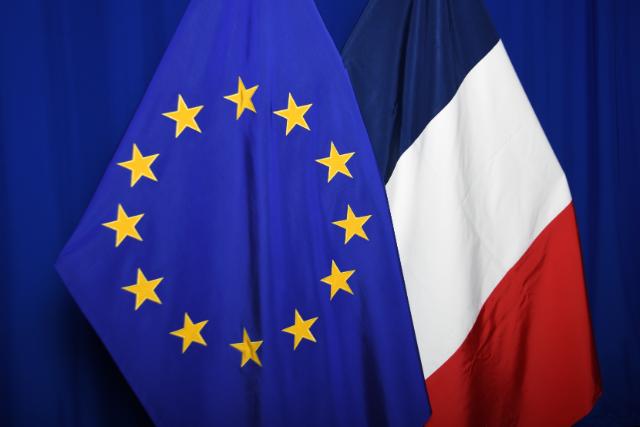








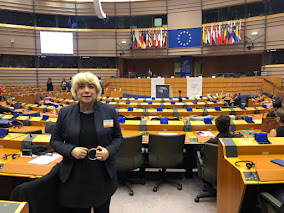
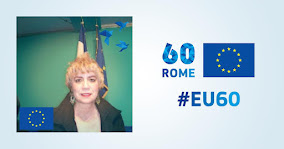
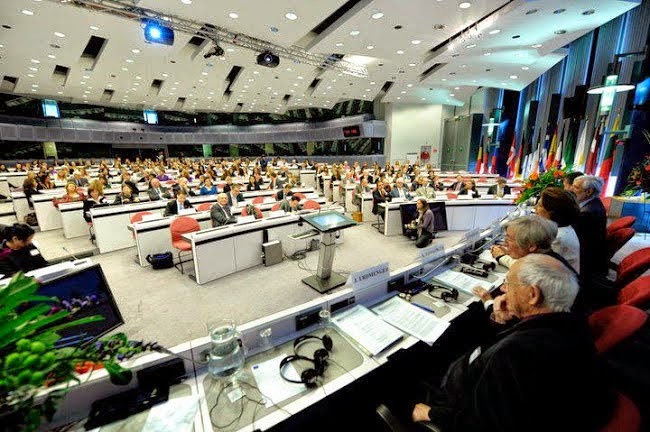





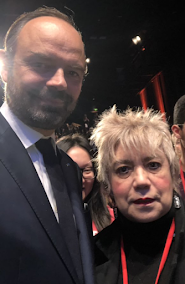











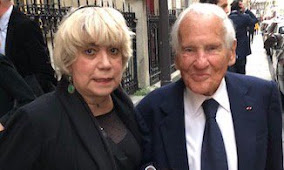





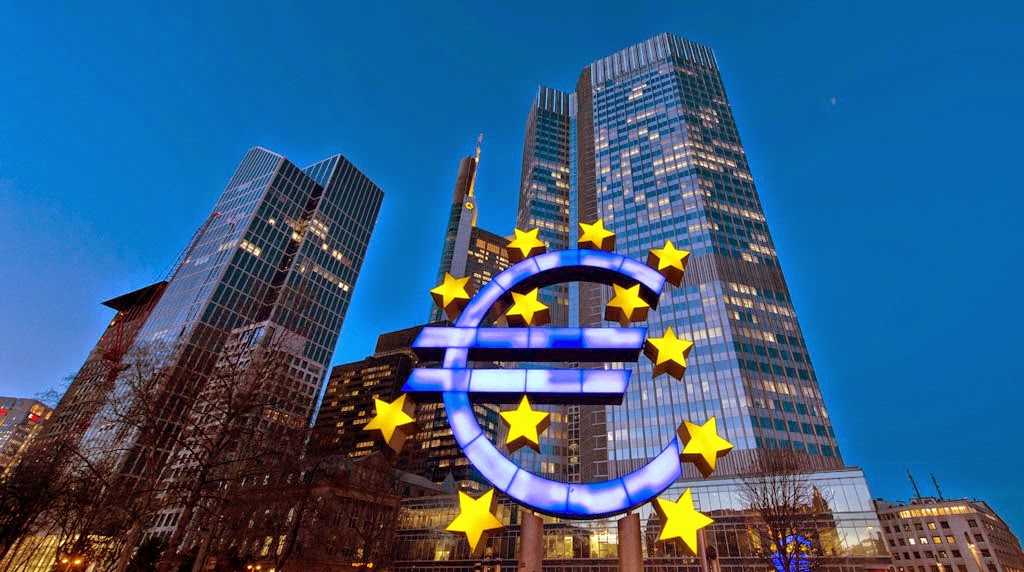

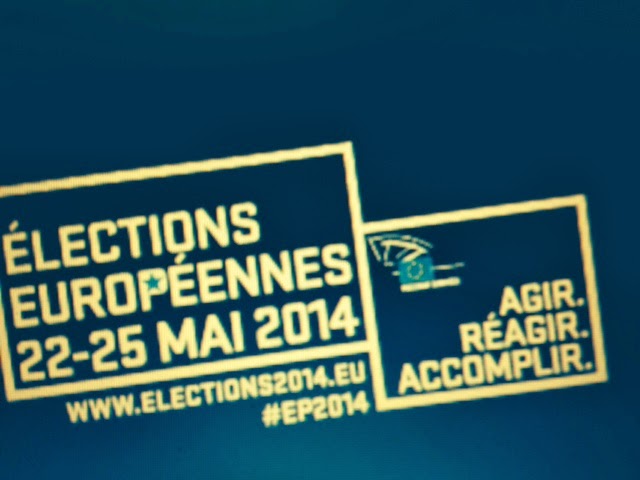




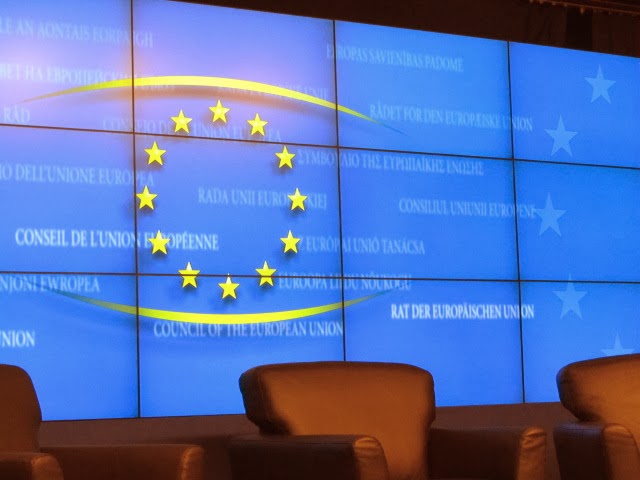







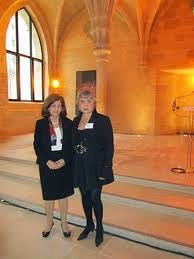

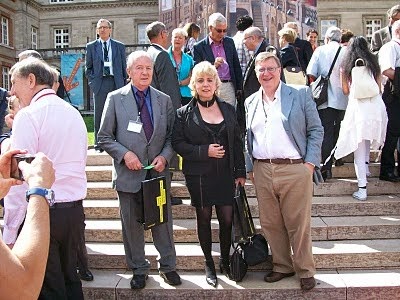




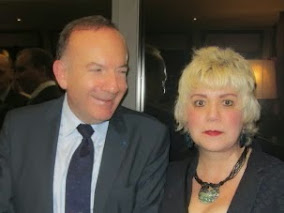












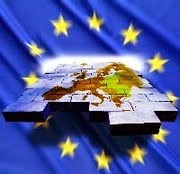
Aucun commentaire:
Enregistrer un commentaire